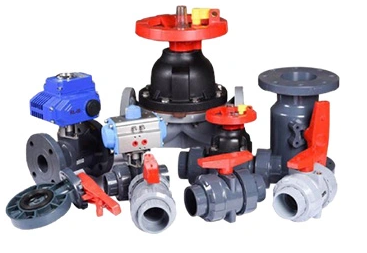
CPVC (Chlorinated Polyvinyl Chloride) industrial pipes are essential in various industrial applications due to their durability, corrosion resistance, and thermal stability. Understanding how a CPVC industrial pipe factory operates can provide insights into the manufacturing process and the factors that influence the quality of these pipes.
Raw Material Preparation
The manufacturing process of CPVC pipes begins with the preparation of raw materials. The primary component is CPVC resin, which is produced by chlorinating PVC (Polyvinyl Chloride) resin. This chlorination process enhances the material's properties, making it suitable for industrial applications. The raw CPVC resin is mixed with stabilizers, lubricants, and other additives to ensure the final product meets specific performance criteria.
Extrusion Process
Once the raw materials are prepared, they are fed into an extrusion machine. In this process, the CPVC mixture is heated and melted to form a viscous liquid. The molten CPVC is then forced through a die to shape it into the desired pipe profile. The extrusion process involves precise control of temperature and pressure to ensure uniformity and consistency in the pipe's dimensions and properties.
Cooling and Cutting
After extrusion, the newly formed CPVC pipes are cooled using a water bath or air cooling system. This step solidifies the pipes and stabilizes their shape. Following cooling, the pipes are cut to the required lengths based on specifications. Quality control checks are performed at this stage to ensure that the pipes meet dimensional and performance standards.
Quality Control and Testing
Quality control is a crucial aspect of the manufacturing process in a CPVC industrial pipe factory. Pipes undergo various tests to ensure they meet industry standards and specifications. These tests may include pressure testing, impact resistance testing, and thermal stability assessments. Quality control ensures that the pipes are free from defects and capable of performing effectively in their intended applications.
Packaging and Distribution
Once the CPVC pipes pass quality control, they are packaged for distribution. Packaging typically involves bundling the pipes and securing them with protective materials to prevent damage during transportation. The packaged pipes are then labeled and shipped to customers or distributors. Effective packaging and distribution practices ensure that the pipes arrive at their destinations in optimal condition.
At Nanyi, we specialize in manufacturing high-quality CPVC industrial pipes. Our factory employs advanced techniques and stringent quality control measures to produce reliable pipes for various industrial applications. Discover our range of products and see how we can support your industrial projects.
